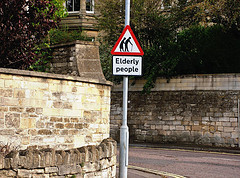Advocates: Now Is The Time To Reform Reverse Mortgages
A large chunk of the U.S. population is heading into what are supposed to be their golden years. But between financial hardship and shortsighted financial planning, many of these people are not able to retire comfortably, if at all. A reverse mortgage that allows homeowners who are at least 62 years old to borrow against the equity of their property may seem like a more appealing alternative to working into one’s 80s, but there are pitfalls involved — some of which can be fixed by a bit of reform.
The Consumer Financial Protection Bureau is currently asking for public comment on the topic of reverse mortgages, and our cohorts at Consumers Union, along with California Advocates for Nursing Home Reform, have written [PDF] to the CFPB to suggest a handful of reforms intended to protect at-risk borrowers.
Among the biggest problems with reverse mortgages is that the equity in the home may not be sufficient to sustain the homeowners through their retirement years. And if the property isn’t maintained to the lender’s liking — or if the homeowners fall behind on property tax payments — the borrowers risk losing their homes to foreclosure. And for all of this, they can also get stuck with sizable loan origination fees, closing costs, and compounding interest.
Here are some troubling findings from the report sent to the CFPB:
Reverse mortgage defaults have risen to a significant level: An estimated 54,000 HUD insured reverse mortgage borrowers — or 9.4 percent of such loans – are in default. The vast majority of defaults are triggered when borrowers are unable to pay their property taxes or keep up with their homeowners insurance.
More borrowers are taking lump sums at earlier ages: Up front lump sum payments now account for 70 percent of new HUD-insured reverse mortgages and the average age of borrowers is 72. Borrowing a lump sum and too soon can result in seniors depleting their home equity prematurely. After exhausting their home equity, many senior borrowers will have no resources to fall back on.
Reverse mortgage marketing can be misleading: Since reverse mortgage proceeds can be used for any purpose, some lenders and others who stand to benefit from them pitch these loans as the ticket to the good life while playing down the potential risks to seniors.
Counseling for borrowers is inadequate: Borrowers who take out a HUD-insured reverse mortgage are required to undergo counseling but by the time the borrowers goes for counseling the decision to take out a reverse mortgage has already been made. Most counseling sessions are done by phone and last just an hour on average even though the counselor is advised by HUD to cover 51 different issues with the potential borrower.
To combat these concerns, the advocacy groups recommended the following reforms:
Ensure loans are suitable for borrowers: Lenders and brokers should be required to consider whether the loans put borrowers at risk of losing their homes, if the borrower understands the complex nature of the contract, and if there are more viable alternatives available to the borrower.
Establish a fiduciary responsibility for the loan: Lenders and brokers must be required to act in the best interests of the borrower and should be held liable for violating this fiduciary duty.
Outlaw deceptive marketing: All reverse mortgages should be required to include a balance of information to help borrowers determine whether the loans are suitable for them. The CFPB should investigate marketing practices by “lead generators” who may be misleading seniors into providing information to sell to loan originators and brokers.
Adopt stronger prohibitions on cross promotions: Prohibitions against cross promotions of other financial products by lenders and brokers should extend to non-HUD-insured loans. Insurance agents and brokers should be held liable for selling an annuity or other financial product or service when it is purchased with reverse mortgage funds.
Strengthen the quality and content of counseling: HUD counselors should be required to hold an in-person session with prospective borrowers to determine whether a reverse mortgage is suitable for the borrower. The counselor should deny a counseling certificate to the borrower if the loan is not in the best interest of the senior.
Protect non-borrowing spouses and tenants: Spouses and tenants whose names are not on the reverse mortgage loan should be notified about their limited rights to remain in the home after the borrower dies or permanently moves out of the home.
“Seniors can be an easy target for unscrupulous reverse mortgage lenders who prey on borrowers who may not fully understand the complex nature of these loans,” said Norma Garcia, senior attorney and manager of Consumer Union’s financial services program. “It’s time to strengthen oversight of the reverse mortgage industry to rein in abuses and protect seniors from losing their most valuable asset – their homes.”
Want more consumer news? Visit our parent organization, Consumer Reports, for the latest on scams, recalls, and other consumer issues.


